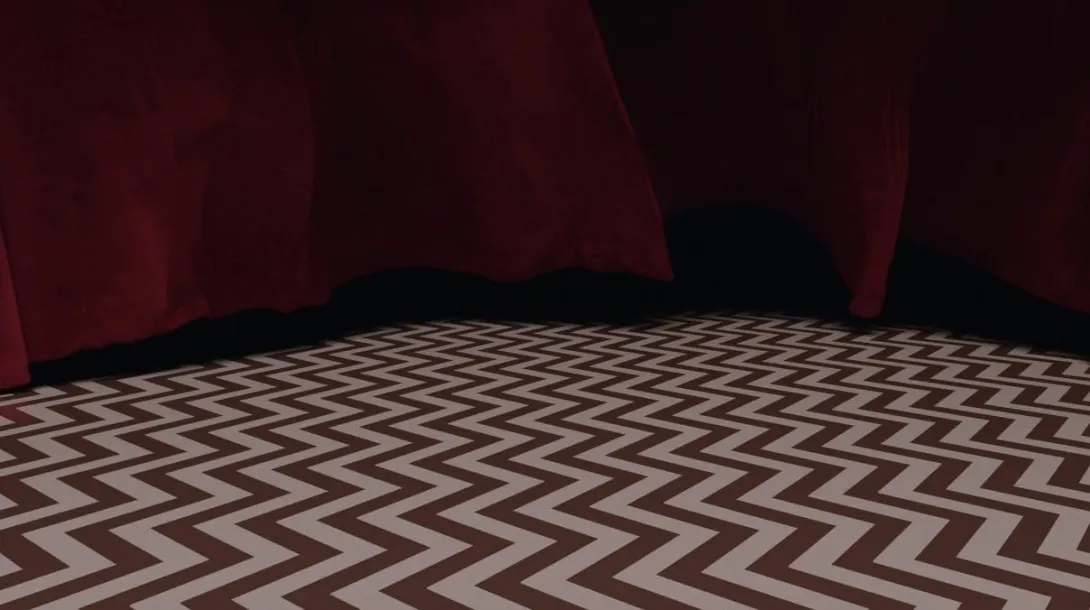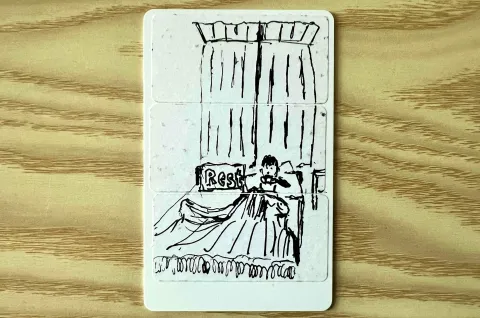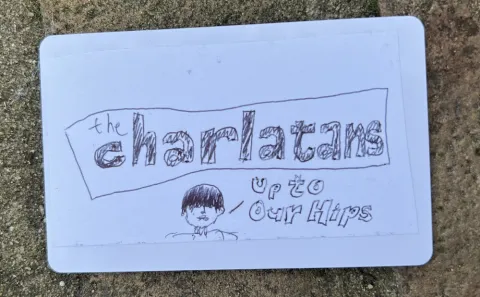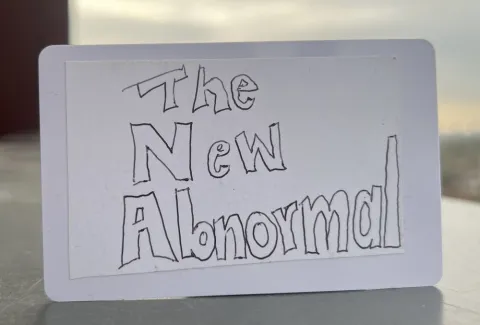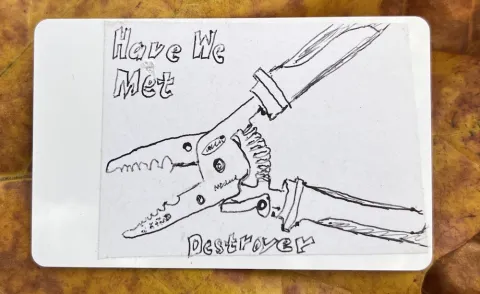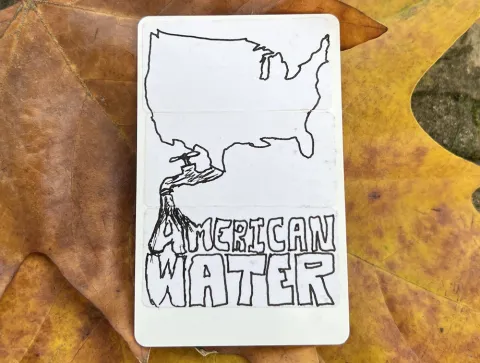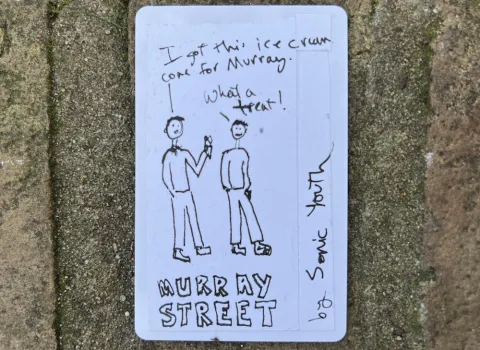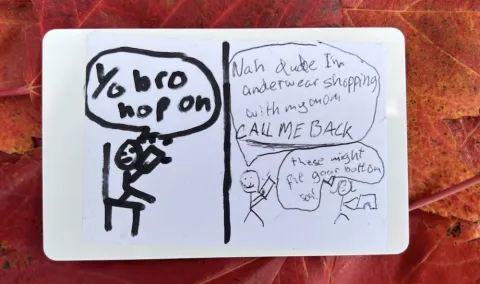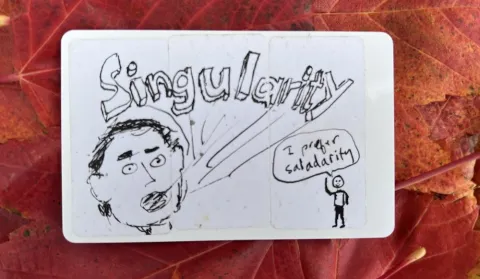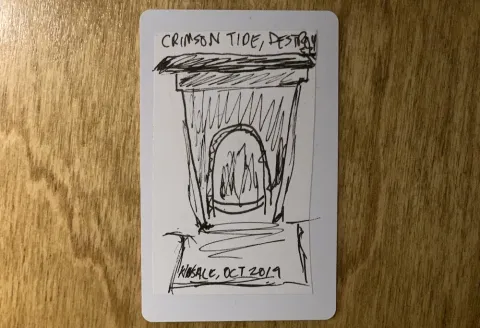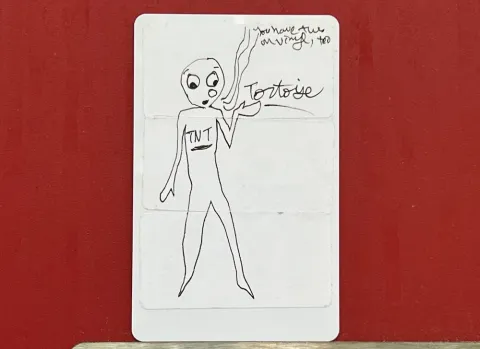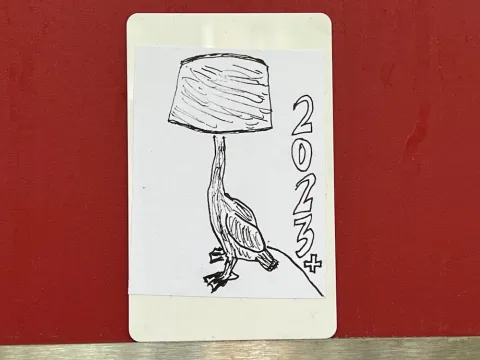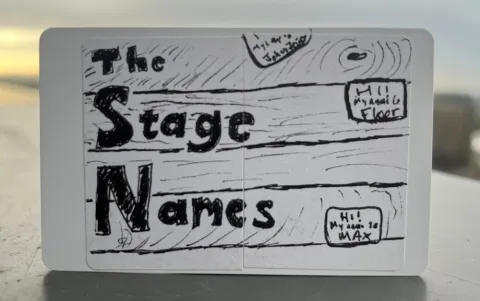Saturday 13 January 2006
A 25-year-old man and his wife enter the Round House Theater in Bethesda, Maryland. They have tickets to see the director, artist and musician David Lynch. He's going to give a reading and sign his book, Catching the Big Fish: Meditation, Consciousness and Creativity.
They were there that night because the man, a writer, loved the show Twin Peaks and had never had a chance to see Lynch in person.
Lynch is wonderful that night, for about an hour he shares sections of the book that hooks musings on meditation within references to his life and art projects. He reads passages of the book and adds some additional remarks in the evening.
Afterwards, the man and his wife queue to meet Lynch, who is seated at a table in the theatre foyer.
"What are you going to say when you meet him?" his wife asks.
"I don't know," he says. "Maybe that Twin Peaks was wonderful, and I'm honoured to meet him?"
"Maybe think of something else," she says.
The man thinks about it as the line of about 20 people in front of them moves quickly -- Lynch keeps the interactions brief, picking up books, saying hello, signing, then saying goodbye. No personalisations in the books, just Lynch's stylised signature on the book's title page.
When the man gets to the front of the queue and stands in front of Lynch, he hands his book ticket to the attendant, who passes a copy of Catching the Big Fish to Lynch.
"Thank you for coming tonight," Lynch says, as he signed his name on the book's cover page.
"It's our pleasure," the man says.
Lynch closes the book and hands it to the man.
As he takes the book, the man says, "Mr Lynch, I became a writer because of you, because of Twin Peaks."
"How's that working out for you?" Lynch says. He seems interested, not annoyed, not put out or disingenuous.
"Very well, I love it," the man say.
"That's super," Lynch says. He extends his hand for a handshake.
++
Among other things, Lynch would release one more feature film, appear in multiple TV shows and films, multiple albums, short films and an incredible, better-than-he'd-ever-expected third series of Twin Peaks, before dying last week.
++
The man extends his hand and he and Lynch briefly shake hands. Lynch's handshake is firm yet incredibly soft. That's the softest skin of anyone I've ever met, the man thought, including the skin of his two baby nephews, who he'd held just two weeks before.
The man and his wife leave. They go to a friend's party in downtown D.C., where they spend the evening with their closest friends in the city.
++
Today, some 19 years later, he man picks up the book and reads from it often. The tickets from the evening are tucked into page 77, which is the start of a two-page chapter about Twin Peaks. In it, Lynch tells a story of a serendipitous encounter when the set dressor and actor who would play Bob. He initially appeared in a scene by accident, reflected in a mirror. His character would become central to the series, and Lynch explained how it was all due to an accident that he'd been open to. "So things like this happen and make you start dreaming. And one thing leads to another, and if you let it, a whole other thing opens up."
The book is comprised of multiple, similarly brief sections. Here's "Keep at It," p163.
It's such a tricky business. You want to do your art, but you've got to live. So you've got to have a job, and then sometimes you're too tired to do your art.
But if you love what you're doing, you're going to keep on doing it anyway. I've been very lucky. Along the way, there are people who help us. I've had plenty of those people in my life who've helped me go to the next step. And you get that help because you've done something, so you have to keep doing it.
So much of what happened to me is good fortune. But I would say: Try to get a job that gives you some time; get your sleep and a little bit of food; and work as much as you can. There's so much enjoyment in doing what you love. Maybe this will open doors, and you'll find a way to do what you love. I hope you do.

